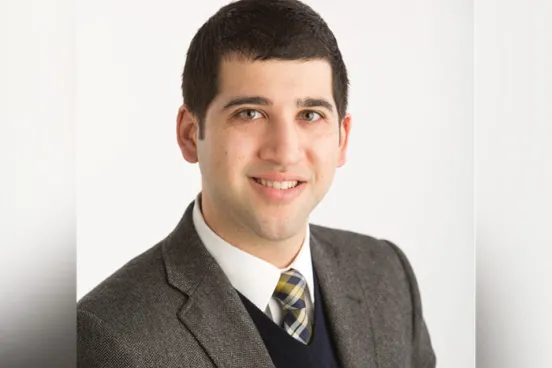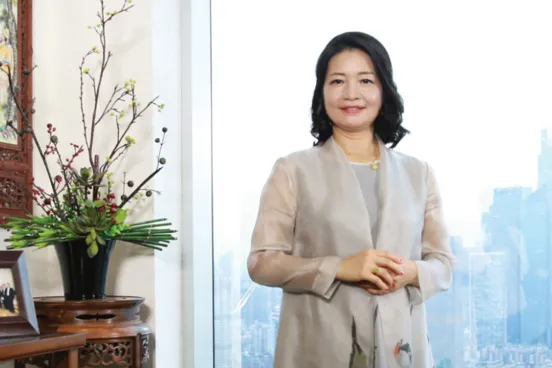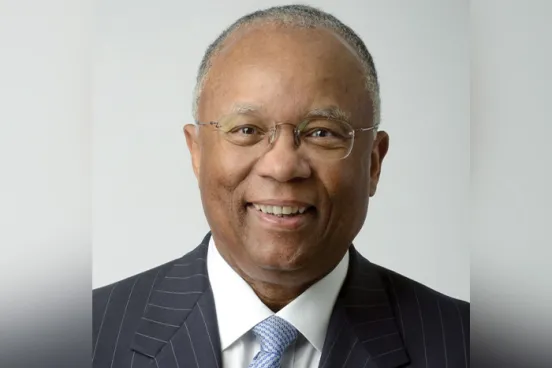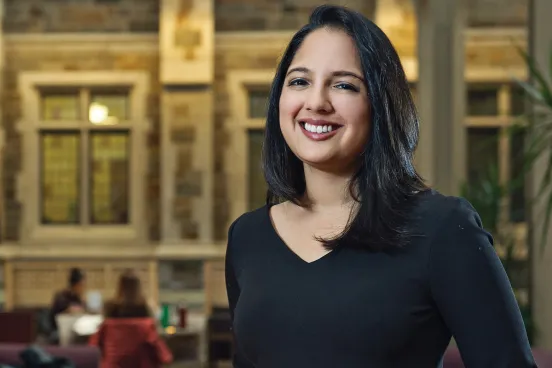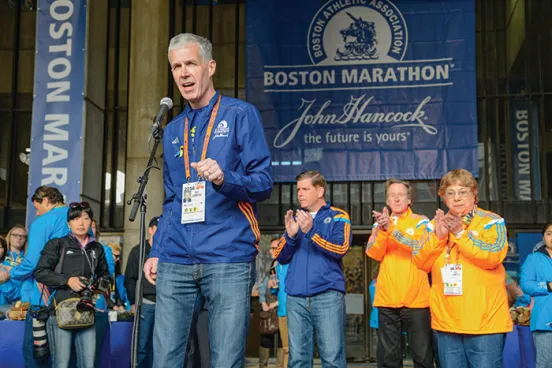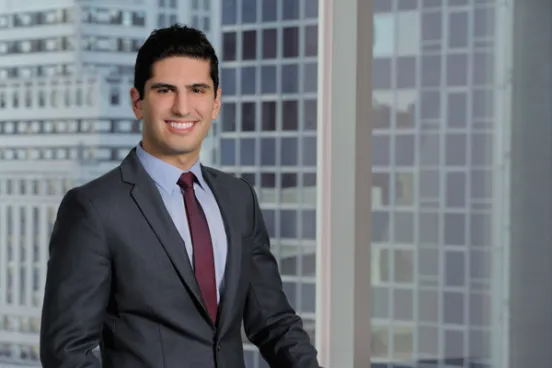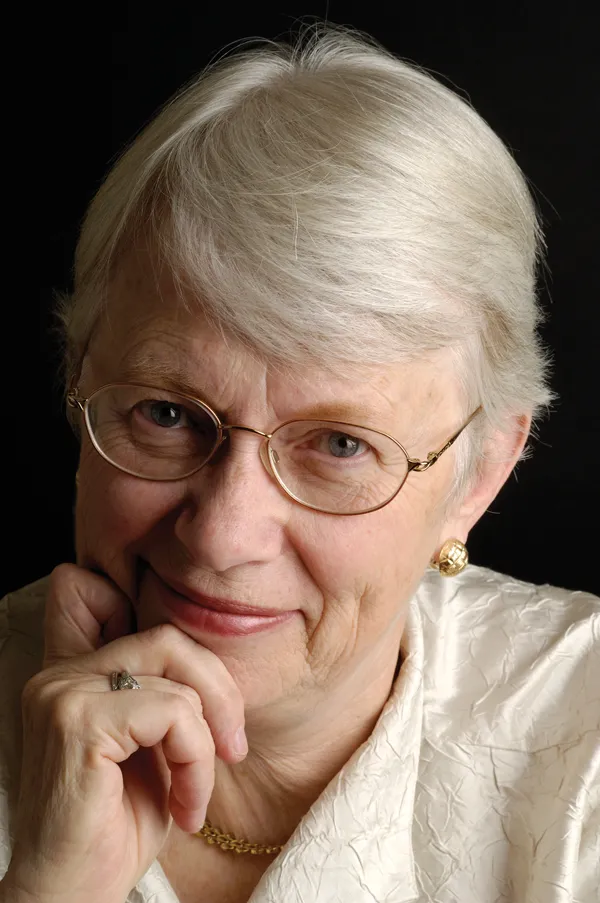
Elizabeth Rindskopf Parker isn’t one to shy away from a challenge. But even she was hesitant to take on the role of executive director of the State Bar of California, a beleaguered organization that was badly in need of a turnaround. What ultimately made Parker say yes was the complexity of the State Bar’s problems and the opportunity to bring stability to the world’s largest unified bar organization.
“It was extremely challenging, and there was one crisis after another,” says Parker, ’68. “But I enjoyed the job very much, even though there were times when I felt like I was drinking from a fire hose. I think that’s what is most enjoyable—when you’re in a position that allows you to learn and grow, rather than doing the same things over and over.”
With 250,000 members, of which 185,000 are active, the State Bar of California is responsible for the licensing, discipline, and regulation of attorneys, and is considered an arm of the California Supreme Court. It also has oversight by the California State Legislature. When Parker took over as executive director in 2015, the State Bar was mired in controversy surrounding the firing of its previous executive director over allegations of financial wrongdoings, its spending was out of control, and it was plagued by years of mismanagement, largely due to turnover in its board leadership as a result of each president only being appointed to a one-year term. “As each successive president took office, individual rather than organizational goals tended to predominate,” says Parker.
In addition to some 500 employees, 56 sub-entities staffed by 704 volunteers existed within the State Bar when Parker took office, with each advancing its own goals and often acting independently of the umbrella organization’s larger mission. “Those ‘vanity initiatives’ created what has been described as a ‘sprawling organization given to entropy and impossible to manage,’” she says. “A major focus of my two years as executive director was to address this vast, decentralized structure in an effort to create organizational coherence, improve function, and create economies through centralized management.” Parker worked over the past year to significantly reduce the number of sub-entities to 12 and the number of volunteers to 200.
Other issues Parker had to address were low bar passage rates, which resulted in a recent bar exam review, and the State Bar’s inability to investigate complaints and discipline attorneys accused of misconduct, which is its primary role, Parker says. California is the only state with independent judges who sit on a State Bar Court and rule on attorney discipline cases, but despite the full-time status of the judges, many of the discipline cases have been slow to resolve, prompting accusations that the State Bar is more interested in protecting its lawyers than the public.
Perhaps the biggest effort Parker undertook as executive director was de-unifying the State Bar of California—separating the associational functions from the regulatory ones. Of the 30 unified bars in the United States, Parker notes, only two have de-unified: Nebraska, by court order, and Wisconsin, for a brief time before it decided to re-unify. Parker has spent the past two years “debating the wisdom of such a move,” which is unpopular among lawyers, but ultimately decided de-unification was needed to help the State Bar change direction. The separation of functions will take effect on January 1, 2018.
“The question of how to structure a bar organization has gotten increasing attention nationally and internationally, and has been very controversial,” Parker says. “For good or ill, I have been largely responsible for orchestrating this change. I can’t say that I’m completely happy about it or that it was an idea that I came with when I joined the Bar as executive director, but I came to think it was necessary in order to bring the organization under better control and to ensure that its focus is on its primary regulatory functions. Our decision to de-unify likely will set off a ripple effect in other jurisdictions.”
Parker initially signed on as executive director for one year, but stayed for two. She stepped down from the post in September after having “reset an organization that has been troubled for years,” which was her goal when she joined the State Bar of California. She is continuing in a consulting role with the organization as it implements changes to its bar exam passing requirements.
Before joining the State Bar, Parker had been doing consulting work following a 10-year tenure as dean of McGeorge School of Law at the University of the Pacific in Sacramento, which ended in 2012. Her time at McGeorge, she says, allowed her to gain better insight into the value of legal education. It also involved complexity, problem solving, and an opportunity to understand what makes an institution succeed or fail—challenges that Parker enjoyed tremendously at McGeorge and at the State Bar.
Prior to her deanship, Parker served as general counsel of the 26-campus University of Wisconsin system. Her varied career also includes working for the federal government as general counsel of the National Security Agency, principal deputy legal adviser at the U.S. Department of State, and general counsel of the Central Intelligence Agency. She also was an associate at international law firms Bryan Cave and Survey Morse, and, while working for the NAACP Legal Defense and Education Fund, successfully litigated twice before the U.S. Supreme Court, “which was quite surprising for a person who found it too frightening to speak in class,” says Parker. In addition, she has taught national security law at McGeorge School of Law, Case Western Reserve Law School, and Cleveland State School of Law.
Parker says she never had an overarching goal for how she wanted her career to play out; instead, it unfolded organically, with opportunities or “lucky occurrences” presenting themselves at the exact time they were needed. One such instance occurred early on in law school, when Parker was trying to find a public service job in Atlanta to be closer to her then boyfriend and eventual first husband. “I remember going to Atlanta Legal Aid and being told by the director that he wouldn’t hire me if I was Constance Baker Motley,” Parker recalls. Defeated, Parker returned to Michigan Law, where her Contracts teacher—Professor Robert Harris—made a phone call on her behalf to a colleague at the University of Pennsylvania, who was fielding applicants for the newly created Reginald Heber Smith Fellowship. With her stipend for receiving the Fellowship, Parker had her choice of jobs, and selected the new Community Legal Services Clinic at Emory University School of Law.
“I didn’t have robust relationships at the Law School, but somehow Professor Harris had been watching out for me,” Parker says. “Part of the reason I was not heavily engaged in law school is because my bona fides had been challenged by a male student in Torts, who asked if I was in law school to find a husband. Deeply offended, I thought, ‘I’ll show him.’ I made myself quite scarce; I never missed a class, but I never did anything that anyone could misinterpret as getting my M.R.S. degree. But I shot myself in the foot by disengaging, which is a dangerous thing to do in any kind of academic setting.”
Despite attending law school in the late 1960s, when the welcome mat wasn’t rolled out for women, Parker says she “got a lot out of Michigan that I didn’t even realize at the time.” As she looks toward the future, which includes leaving San Francisco and returning to the East Coast in 2018 to be closer to family, Parker has been reflecting on her career—and hasn’t found it to be lacking. “It’s been wonderful and meaningful for me,” she says, “and I’ve enjoyed continuous lifetime learning. Working for the State Bar of California has been a rewarding capstone chapter for my career.”


